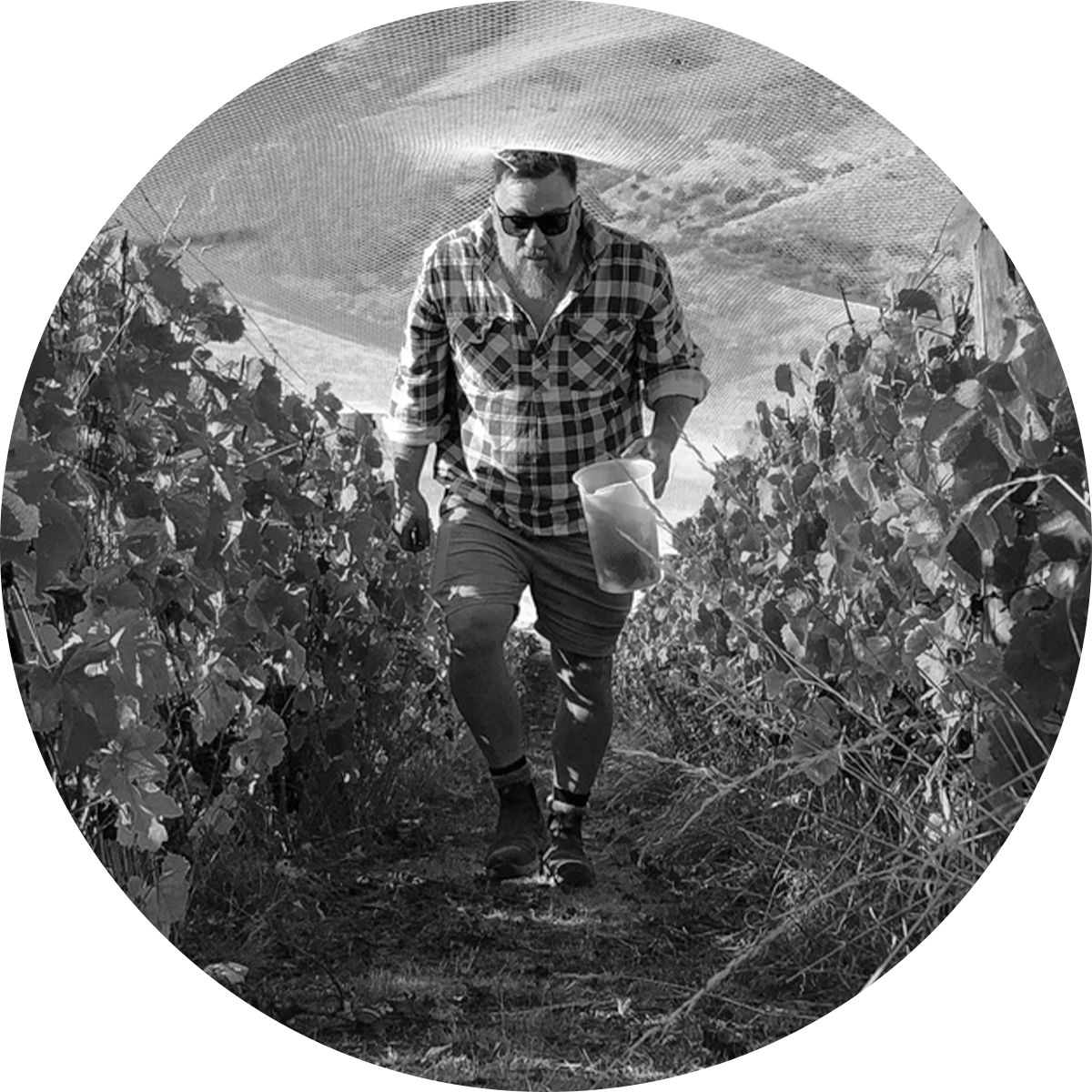THE HERMIT RAM
THEO COLES
Canterbury, New Zealand
‘It all began in 2002, when I stumbled across an etching of a large gnarly looking ram standing in a field during my travels. He was defiant, a little savage, had an old world charm and was very New Zealand. I bought him, had him framed and hung him up in my lounge.’ - Theo Coles.
With two decades of experience under his belt and working harvests in Europe, Theo Coles wines stand totally apart against a myriad of New Zealand wines that are often mass-produced and taste the same. In 2012 an opportunity arose, and Theo started working with Gareth Renowden who owned a little Pinot Noir vineyard in Waipara Gorge - Canterbury, in the north of New Zealand’s South Island. What came from the parcel via natural winemaking was a distinct forest-like, salty tang and this was the beginning of the Hermit Ram - named after an etching of a defiant, solo ram that he had bought a decade earlier. Since then, Theo kept pushing the envelope to explore natural winemaking further, in his own vision. He expanded the range of his wines, and the fruits come from tiny vineyards throughout the Canterbury region, all naturally farmed without chemicals and Theo is keen to stress that every wine has its own story to tell.
-
The Hermit Ram Pinots 2023
Regular price HK$270.00Regular priceUnit price / per -
 Sold out
Sold outFRIDGE FAVS
Regular price HK$1,520.00Regular priceUnit price / per
BACKGROUND OF NATURAL WINE IN NEW ZEALAND
New Zealand's natural wine scene is an exciting chapter in the country's winemaking narrative, marked by a commitment to sustainability and a return to traditional, minimal-intervention practices. While New Zealand's wine industry gained international acclaim for its Sauvignon Blanc and Pinot Noir, the natural wine movement has added a unique dimension, drawing inspiration from both ancient winemaking methods and the country's pristine terroir. Regions like Marlborough, Central Otago, and Martinborough have become focal points for natural wine enthusiasts, where winemakers harness the expressive qualities of local grape varieties such as Sauvignon Blanc, Pinot Noir, and Chardonnay. With a blend of innovation and reverence for the land, New Zealand's natural wine producers are contributing to the global conversation on sustainable viticulture and producing wines that encapsulate the essence of their terroir.
Organic, Biodynamic and Natural wine. What’s the difference?
To understand this concept and its various ramifications, it is necessary to keep something clear in mind: before the 20th century and the spreading of affordable synthetic fertilisers, all farming was organic. When the shift to the use of synthetics and pesticides happened, it became necessary to diversify traditional organic farming from the new modern farming.
ORGANIC WINE
Simply put, organic farming forbids the use of synthetic fertilisers, synthetic pesticides, herbicides, or genetically modified organisms. The basic requirements are generally specific and engage the farmers not to use any chemical fertilisers and other synthetic products in the vineyard. It does not prevent the vintner from using the conventional winemaking process after harvesting.
BIODYNAMIC WINE
Let’s take organic farming one step further: Biodynamic. The creator of this agricultural system is the Austrian philosopher Rudolf Steiner, who developed the principles of biodynamics in a series of lectures given in 1924 in Germany. Here lies the foundation of true organic wines, with a strict limit in the use of additives, stringent requirements and at the end obtaining a biodynamic certification.
NATURAL WINE
The previous definitions are usually, and rightfully, associated with it, because most natural wine is also organic and/or biodynamic. But not vice versa!
Natural wine is wine in its purest form, simply described as nothing added, nothing taken away, just grapes fermented. No manipulation whatsoever, minimal intervention both in the vineyards and in the winery. Healthy grapes, natural yeast and natural fermentation, with no filtration nor fining. Sounds easy, right? However, making natural wine is unforgiving and it requires a bigger amount of work than conventional wine. To this day, natural wine has no certification yet.







